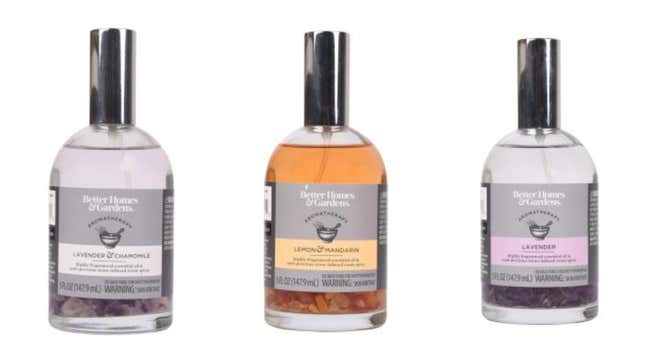
On Friday, the Centers for Disease Control and Prevention announced a primary suspect behind a perplexing outbreak of melioidosis, a tropical and often fatal bacterial disease rarely found in the United States: a brand of aromatherapy spray sold by the retail chain Walmart online and at dozens of stores. Though the investigation is ongoing, the spray in question is now being recalled.
Earlier this July, CDC officials reported that three people from different states—Kansas, Texas, and Minnesota—had all recently contracted melioidosis, caused by the Burkholderia pseudomallei. A fourth case was identified in August, from Georgia. All four had been hospitalized as a result, and two subsequently died.
While the cluster was low in number, it was concerning because melioidosis is rarely ever reported in the U.S., and when it is, it’s usually after someone contracted the infection from traveling somewhere else. The victims shared closely related strains of melioidosis, but had no recent travel history or interaction with one another, adding to the mystery. But because the strain did seem to resemble strains found in South Asia, it was suspected that some unknown contaminated product imported from that area had to be the source of contagion. The bacteria are regularly found in the soil and water where it’s endemic.
Finally, in the home of the Georgia patient, investigators said they found the bacteria within a bottle of “Better Homes & Gardens Lavender & Chamomile Essential Oil Infused Aromatherapy Room Spray with Gemstones.” Their investigation has now prompted a voluntary recall of the brand and five others in the same product line by Walmart, which was announced concurrently Friday by the Consumer Safety Products Commissions. Full details of the recall can be found in their announcement, including handling instructions.
CDC investigators are still working on confirming the smoking gun to this outbreak—whether the bacteria in the bottle is a match for the bacteria found in these patients. But even if the spray isn’t connected to these cases, the potential risk of exposure is serious. The fatality rate of melioidosis, which can be hard to diagnose and identify with standard tests, can be up to 40%. And the brand was found to be sold online and at 55 different Walmart stores between February to October 2021, according to the CDC. About 4,000 units of the products are included in the recall.
Melioidosis remains a rare disease, though some scientists have worried that it may naturally gain a foothold in the Southern United States as the climate warms. But anyone who has this spray or related brands is recommended to immediately stop using it. People should not open the bottle, nor attempt to dispose of it in the regular trash. Instead, they should double bag the spray bottle, then place it in a cardboard box and send it to Walmart, and wash their hands thoroughly afterward, even if wearing gloves. Bedding and clothing that the spray may have touched should be laundry cleaned, while possibly exposed surfaces around the home should be cleaned with undiluted Pine-Sol or similar disinfectant.
And if you’ve used the product in the last 21 days and are experiencing fever or other symptoms that could be melioidosis (symptoms vary, depending on where the infection takes place, but a comprehensive list can be seen here), you should immediately see a doctor and tell them about the spray. Doctors too should be on the lookout for possible cases, and shouldn’t dismiss the possibility of the infection in people with no travel history, the CDC said.
Update, November 1, 2021, 5:15 PM:
On October 26, the CDC announced that the stain of melioidosis bacteria found in the aromatherapy spray was indeed a match for the outbreak strain found in the four patients; another spray bottle subsequently tested positive for the bacteria as well. There are still many unresolved questions about the outbreak, including the extent of contamination and where along the supply chain it occurred. Officials said that they’ve gotten in touch with the product’s manufacturer in India to find out if any other products may have been exposed to the bacteria. Notably, this is the second outbreak of melioidosis linked to an imported product reported this year, following a 2019 case that was ultimately traced back to a tropical fish home aquarium.
“When you think about the thousands of things people come in contact with around their homes, it’s remarkable we were able to identify the source and confirm it in the lab,” said Inger Damon, director of CDC’s Division of High-Consequence Pathogens and Pathology, in the CDC’s announcement. “CDC scientists and our partners found the proverbial needle in the haystack.”